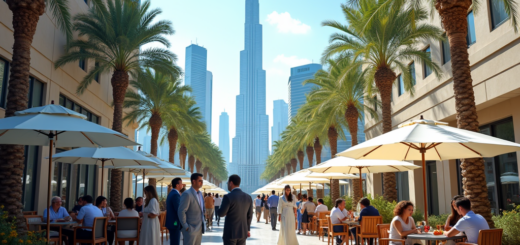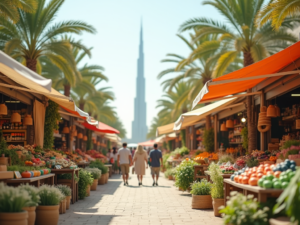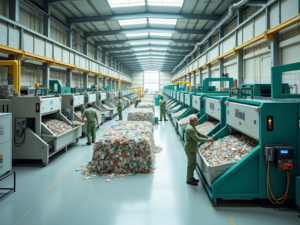The Role of Dubai in Global Trade and Logistics
Dubai has emerged as a pivotal hub for global trade and logistics, strategically positioned between Europe, Asia, and Africa. Its state-of-the-art infrastructure, business-friendly policies, and diverse economic environment have contributed to the city’s rapid growth as a trade center. The combination of high-tech advancements with traditional trading practices allows Dubai to maintain a competitive edge in the global marketplace. As a result, it attracts businesses and investors from all corners of the globe. This article will explore the various dimensions of Dubai’s role in global trade and logistics, highlighting its strategic location, advanced infrastructure, and the innovative initiatives that propel its economic growth.
Strategic Location: The Geographic Advantage of Dubai
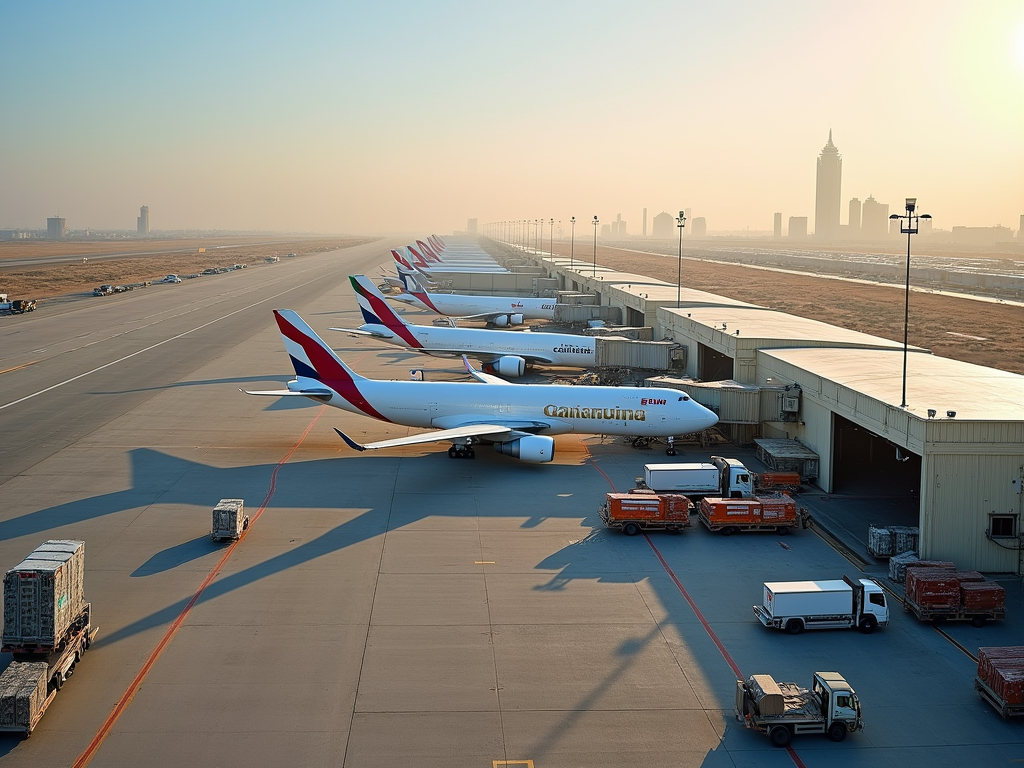
One of the most significant factors contributing to Dubai’s status in global trade is its strategic geographical location. Situated at the crossroads of Europe, Asia, and Africa, it acts as a gateway for trade between these continents. This central location facilitates quick access to major markets, enabling businesses to ship goods efficiently. The city is accessible by land, air, and sea, which further enhances its appeal for global logistics. Companies can benefit from reduced shipping times and costs, making Dubai an attractive location for international businesses. Key geographic advantages include:
- Proximity to Key Markets: Businesses can easily reach major economies in less time and at a reduced cost.
- Access to Major Shipping Routes: The ports in Dubai are located on vital shipping lanes, crucial for maritime trade.
- Strategic Air Connectivity: Dubai International Airport is one of the busiest airports in the world, facilitating extensive air freight options.
Advanced Infrastructure: A Trade and Logistics Powerhouse
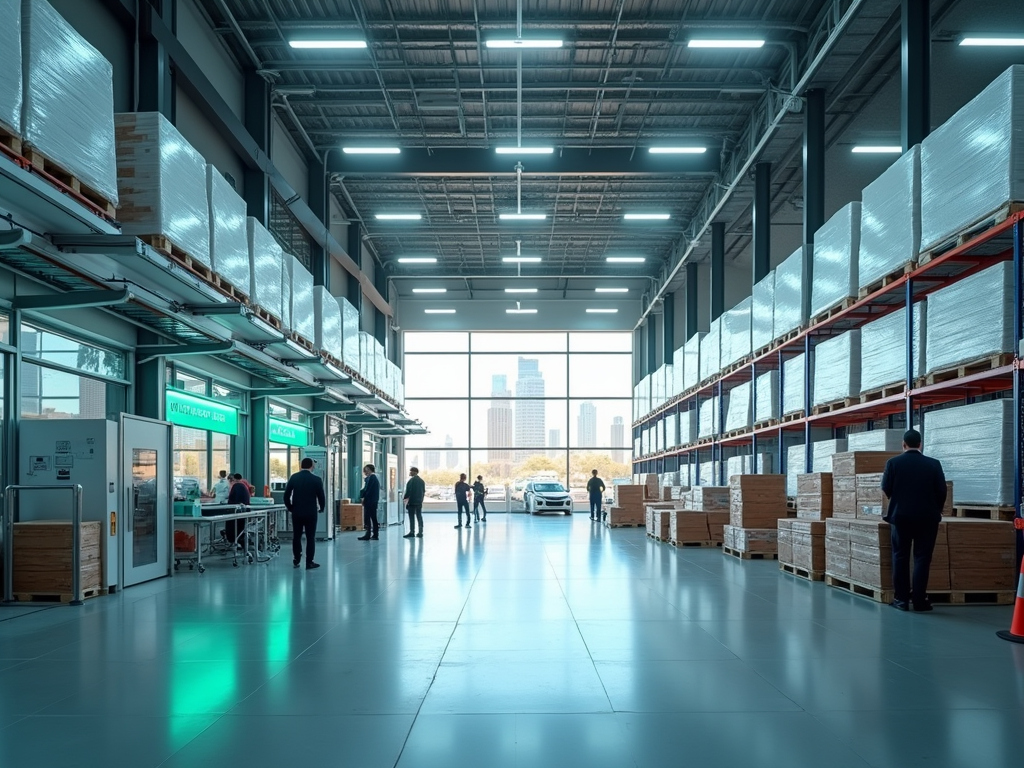
Dubai’s robust infrastructure is another critical component of its global trade and logistics success. The city is equipped with world-class transport facilities, including state-of-the-art ports and airports that can handle a massive volume of goods. Jebel Ali Port, for instance, is the largest man-made harbor globally, supporting extensive cargo operations. Coupled with a well-connected road network, these facilities enable swift transportation of goods. Notable infrastructure developments include:
- Jebel Ali Port: A vital trade hub that accommodates the largest shipping vessels.
- Dubai International Airport: Provides a dedicated cargo terminal supporting air freight operations.
- Dubai Logistics City: A special economic zone focused on enhancing logistics capabilities.
- Innovative Warehousing Solutions: Advanced facilities that support efficient inventory management and distribution.
Business-Friendly Environment: Policies Promoting Trade
Dubai’s government has implemented various business-friendly policies that bolster the city’s reputation as a trading hub. These policies are designed to facilitate trade, attract foreign investment, and support economic diversification. The establishment of free zones in Dubai allows 100% foreign ownership and provides tax incentives. Moreover, initiatives such as the “Dubai Trade” portal streamline processes and improve efficiency in trading operations. Significant policies include:
- Free Trade Zones: Areas with special tax and regulatory conditions to attract foreign businesses.
- Reduced Import Duties: Lower tariffs encourage international trade.
- Streamlined Customs Procedures: Simplified customs processes for quicker transactions.
- Incentives for Innovation: Support for technological advancements in logistics and supply chain management.
Innovative Technologies in Trade and Logistics
Innovation is at the heart of Dubai’s trade and logistics strategy. The city has embraced advanced technologies to enhance operational efficiency and improve customer experiences. The use of artificial intelligence (AI), blockchain, and Internet of Things (IoT) technologies helps optimize supply chain management. Moreover, Dubai is investing in smart logistics solutions, including autonomous delivery systems and enhanced tracking technologies that provide real-time information to stakeholders. Key technological innovations include:
- Blockchain Technology: Enhances transparency and security in trade transactions.
- Smart Logistics Solutions: Use of AI for predictive analytics and better demand forecasting.
- Automated Operations: Robotics and drones for efficient warehousing and delivery processes.
- Data Analytics: Leveraging big data for supply chain visibility and management.
Conclusion
In conclusion, Dubai’s role in global trade and logistics is multifaceted and strategically significant. Its advantageous location combined with sophisticated infrastructure, supportive policies, and technological innovations form a robust framework for business operations. These attributes not only attract international trade but also position Dubai as a leading player in the global trade landscape. As the city continues to evolve, it is poised to set new standards in logistics and trade management, further enhancing its reputation on the world stage.
Frequently Asked Questions
1. What makes Dubai a preferred location for global trade?
Dubai’s central location, state-of-the-art infrastructure, and business-friendly policies make it an attractive hub for global trade, allowing efficient access to major international markets.
2. What are the major logistics facilities in Dubai?
Key logistics facilities in Dubai include Jebel Ali Port, Dubai International Airport, and dedicated logistics zones like Dubai Logistics City.
3. How does the government support foreign investment in Dubai?
The government supports foreign investment through the establishment of free trade zones, reduced import duties, and streamlined customs procedures, enabling businesses to operate efficiently.
4. What role does technology play in Dubai’s logistics sector?
Technology plays a critical role in optimizing Dubai’s logistics sector by enhancing operational efficiency, enabling real-time tracking, and supporting impactful supply chain management through innovations like AI and blockchain.
5. Will Dubai continue to enhance its trade capabilities in the future?
Yes, Dubai is committed to continuous improvement in its trade capabilities, with plans for further investments in technology, infrastructure, and trade facilitation initiatives to maintain its competitive edge.

